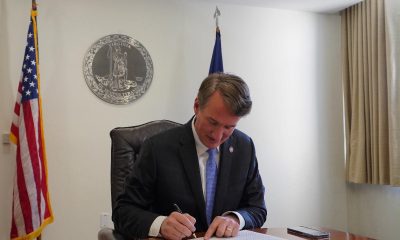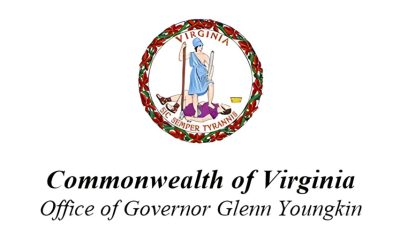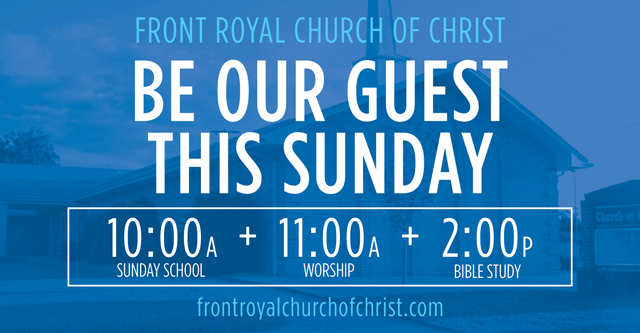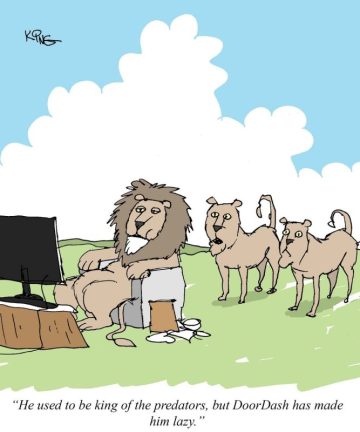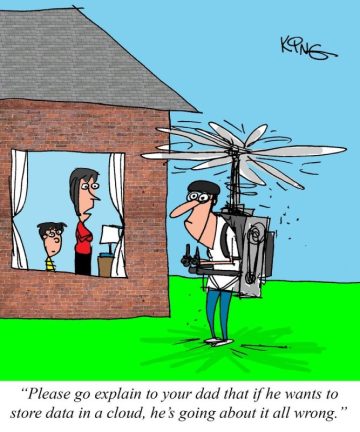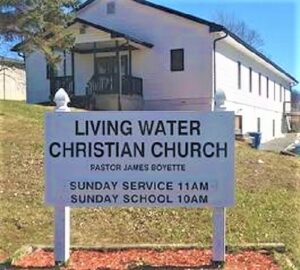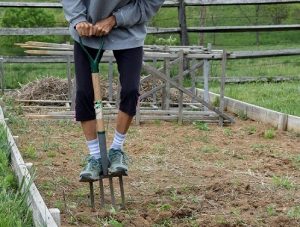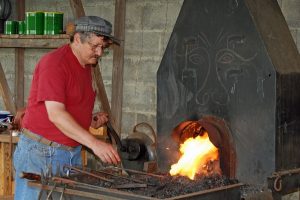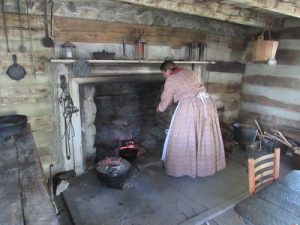State News
Governor Glenn Youngkin signs over 100 bills into law
This week, Governor Glenn Youngkin signed over one hundred bills into law including legislation that gives parents more control over what their children are being taught, helps shore up animal cruelty rules, and reforms inadequate sexual assault laws.
“HB 938, carried by Delegate Roxann Robinson, and SB 656, carried by Senator Siobhan Dunnavant, both deliver on my Day One promises to give parents a greater say in their children’s education. I’m pleased to sign them into law, along with many other bipartisan bills that will enhance education, improve public safety, provide tax relief, and make government work better for the people of Virginia,” said Governor Glenn Youngkin.
Below is a summary of the bills that were signed:
HB 938 (Robinson) – Board of Education; stakeholder group; evaluation of and recommendations for certain current and proposed policies and performance standards for public elementary and secondary schools. Requires the Board of Education to collaborate with the Superintendent of Public Instruction and the Secretary of Education to convene a group of stakeholders to include parents, public school principals, public school superintendents, public school board members, public school teachers, institutions of higher education, the State Council of Higher Education for Virginia, industry partners and employers, and other concerned stakeholders to evaluate, to implement where possible, and to otherwise make recommendations to the General Assembly regarding the following goals: (i) promoting excellence in instruction and student achievement in mathematics; (ii) expanding the Advanced Studies Diploma as an option for students in public high schools in the Commonwealth; (iii) increasing the transparency and honesty of performance measures for public elementary and secondary schools in the Commonwealth; (iv) ensuring that performance measures for public elementary and secondary schools prioritize the attainment of grade-level proficiency and growth during the course of a school year and from school year to school year in reading and mathematics for all students, especially in grades kindergarten through five; (v) ensuring that the Commonwealth’s proficiency standards on Standards of Learning assessments in reading and mathematics are maintained; and (vi) ensuring a strong accreditation system that promotes meaningful accountability year-over-year. The bill requires the Secretary of Education and the Superintendent of Public Instruction, no later than November 30, 2022, to report to the Chairmen of the House Committee on Education and the Senate Committee on Education and Health the results of such evaluation and recommendations to achieve such goals.
SB 656 (Dunnavant) – Department of Education; local school boards; policies on sexually explicit content in instructional material. Requires the Department of Education to develop no later than July 31, 2022, model policies and each local school board to adopt no later than January 1, 2023, policies for ensuring parental notification of any instructional material that includes sexually explicit content and include information, guidance, procedures, and standards relating to (i) ensuring parental notification; (ii) directly identifying the specific instructional material and sexually explicit subjects; and (iii) permitting the parent of any student to review instructional material that includes sexually explicit content and provide, as an alternative, nonexplicit instructional material, and related academic activities to any student whose parent so requests. The bill provides that the local school board policies shall be consistent with but maybe more comprehensive than the model policies developed by the Department. The bill states that the provisions of the bill shall not be construed as requiring or providing for the censoring of books in public elementary and secondary schools.
HB 225 (Coyner) & SB 321 (Vogel) – Health insurance; definition of autism spectrum disorder. Provides that for the purposes of required health insurance coverage for the diagnosis and treatment of autism spectrum disorder, “autism spectrum disorder” means any pervasive developmental disorder or autism spectrum disorder, as defined in the most recent edition or the most recent edition at the time of diagnosis of the Diagnostic and Statistical Manual of Mental Disorders of the American Psychiatric Association and “medically necessary” means in accordance with the generally accepted standards of mental disorder or condition care and clinically appropriate in terms of type, frequency, site, and duration, based upon evidence and reasonably expected to do any of the following: (i) prevent the onset of an illness, condition, injury, or disability; (ii) reduce or ameliorate the physical, mental, or developmental effects of an illness, condition, injury, or disability; or (iii) assist to achieve or maintain maximum functional capacity in performing daily activities, taking into account both the functional capacity of the individual and the functional capacities that are appropriate for individuals of the same age.
SB 202 (Newman) – Study; Secretary of Health and Human Resources and Secretary of Public Safety and Homeland Security; increase use of alternative custody arrangements for individuals subject to an emergency custody or temporary detention order; report. Directs the Secretary of Health and Human Resources, together with the Secretary of Public Safety and Homeland Security, to study options to increase the use of alternative custody arrangements for individuals who are subject to emergency custody or temporary detention order and to report his findings and recommendations to the Governor and the Chairmen of the House Committees on Appropriations and Health, Welfare and Institutions and the Senate Committees on Education and Health and Finance and Appropriations by October 1, 2022.
HB 236 (Orrock) Board of Education; authority to temporarily extend certain teachers’ licenses. Permits the Board of Education to grant a two-year extension of the license of any individual licensed by the Board of Education pursuant to its statutory authority whose license expires on June 30, 2022, in order to provide the individual with sufficient additional time to complete the requirements for licensure or license renewal. The bill contains an emergency clause.
HB 223 (Coyner) & SB 437 (Dunnavant)- Insurance for employees of certain public school foundations. Provides that any locality may provide group life, accident, and health insurance programs for employees of certain public school foundations.
SB 212 (Kiggans)- Special license plates; United States Navy; Navy-Marine Corps Relief Society Fund. Authorizes the issuance of revenue-sharing special license plates with a design that incorporates the emblem of the United States Navy to active members and certain veterans of the United States Navy. The bill provides that un-remarried surviving spouses of such service members may also be issued such special license plates. The bill creates the Navy-Marine Corps Relief Society Fund to utilize funds from the license plate fees to support the Navy-Marine Corps Relief Society in Virginia.
HB 1278 (Wiley) – Conveyance of certain property; conditions. Authorizes the Department of Wildlife Resources to convey certain property to the Shenandoah Valley Battlefields Foundation. Any deed of conveyance shall include a condition that the property is open to public use, including public fishing, and shall provide that the property shall revert to the Commonwealth if the condition is not met.
SB 221 (Obenshain) – Indexing of wills; pilot program in Rockingham County. Permits the clerk of the Rockingham County Circuit Court to establish a pilot project for an index of wills lodged for safekeeping, with a searchable database available to the public.
SB 227 (Obenshain) – Misdemeanor sexual offenses where the victim is a minor; statute of limitations; penalty. Provides that the prosecution of the misdemeanor offense of causing or encouraging acts rendering children delinquent where the alleged adult offender has consensual sexual intercourse with a minor who is 15 years of age or older at the time of the offense shall be commenced no later than five years after the victim reaches majority provided that the alleged adult offender was more than three years older than the victim at the time of the offense. Under current law, the prosecution of such an offense shall be commenced within one year after commission of the offense.
HB 238 (Orrock) – Land use assessment; forms. Provides that the forms used for revalidation of applications for land use assessment shall be prepared by the Department of Taxation. Under current law, such forms are prepared by the locality. The bill directs the Department to seek input from localities across the Commonwealth in developing such forms.
HB 235 (Orrock) – Rehabilitation hospitals; arrangements for follow-up care. Directs the Board of Health to convene a workgroup to provide recommendations regarding regulations requiring hospitals to develop protocols for connecting patients receiving rehabilitation services to necessary follow-up care. The bill requires the workgroup to report its recommendations to the Board of Health by October 1, 2022.
HB 82 (Kilgore) – Insurance holding company systems; group capital calculation and liquidity stress test. Requires that certain insurers that are members of an insurance holding company system file a group capital calculation in accordance with the National Association of Insurance Commissioners (NAIC) Group Capital Calculation Instructions and a liquidity stress test in accordance with the NAIC Liquidity Stress Test Framework. The bill provides exceptions to such reporting requirements and contains various provisions regarding the confidentiality of information contained in such reports. The bill authorizes the State Corporation Commission to require a deposit or bond when an insurer that is a member of an insurance holding company system is in a hazardous financial condition or a condition that would be grounds for the supervision, conservation, or delinquency proceeding.
HB 193 (Hodges) & SB 759 (Newman) – Drug Control Act; Schedule I; Schedule II; Schedule IV; Schedule V. Adds certain chemicals to the Drug Control Act. The Board of Pharmacy has added these substances in an expedited regulatory process. A substance added via this process is removed from the schedule after 18 months unless a general law is enacted adding the substance to the schedule.
HB 1001 (Runion) & SB 55 (Cosgrove) – Amending death certificates. Requires the State Registrar, upon receipt of an affidavit and supporting evidence testifying to corrected information on a death certificate within 45 days of the filing of a death certificate, to amend such death certificate to reflect the new information and evidence. The bill also requires the State Registrar, upon receipt of an affidavit and supporting evidence testifying to corrected demographic information on a death certificate more than 45 days after the filing of a death certificate, to amend such death certificate to reflect the new information and evidence.
HB 284 (Coyner) – Real Estate Appraiser Board; continuing education to include fair housing or appraisal bias courses. Provides that any regulation of the Real Estate Appraiser Board setting out continuing education requirements for real estate appraiser licensees as a prerequisite of license renewal shall include at least two hours of fair housing or appraisal bias courses if the Board requires continuing education for the renewal of such licenses. The bill directs the Real Estate Appraiser Board to promulgate regulations to implement the provisions of this act that include a course of at least two hours relating to fair housing or appraisal bias and exempts the initial adoption of such regulations from the Administrative Process Act, except that the Board shall provide an opportunity for public comment prior to the adoption of the regulations. The bill has a delayed effective date of July 1, 2023.
SB 753 (Morrisey) – Special license plates; THE RICHMOND PLANET. Authorizes the issuance of special license plates commemorating the Richmond Planet newspaper bearing the legend THE RICHMOND PLANET.
HB 218 (Wright) & SB 91 (Ruff) – Charter; Town of Clarksville; town council. Makes various changes related to the Town of Clarksville’s upcoming transition from May to November municipal elections.
HB 219 (Wright) – Charter; Town of Kenbridge. Updates the town’s charter to reflect the upcoming shift in municipal elections from May to November. In addition, the bill reduces the mayor’s term from four years to two years, beginning with the election to be held in November 2024.
HB 220 (Wright) & SB 92 (Ruff) – Charter; Town of Blackstone; elections. Updates election provisions for the Town of Blackstone in Nottoway County to reflect the shift from May to November elections.
HB 957 (Tran) – Classification of real property. Provides that beginning with the taxable year 2022, any locality may declare real property owned by a surviving spouse of a member of the Armed Forces of the United States who died in the line of duty with a line of duty determination from the U.S. Department of Defense, where such death was not the result of criminal conduct, and where the spouse occupies the real property as his principal place of residence and does not remarry, a separate class of property for local taxation of real property that may be taxed at a different rate than that imposed on the general class of real property, provided that the rate of tax is greater than zero and does not exceed the rate of tax on the general class of real property.
SB 254 (Bell) & HB 426 (Bulova) – Alcoholic beverage control; delivery of alcoholic beverages; third-party delivery license; container. Creates a third-party delivery license that authorizes the licensee to deliver alcoholic beverages purchased by consumers from other retail licensees. The bill establishes conditions for the issuance of third-party delivery licenses, imposes eligibility requirements for delivery personnel, and sets forth requirements for a delivery to be made by such delivery personnel. The bill imposes a $2,500 fine for first-time violations of the delivery requirements and a $5,000 fine for second and subsequent violations. The bill also establishes container requirements for certain alcoholic beverages sold for off-premises consumption or delivery.
SB 63 (Ruff) & HB 16 (Fowler) – Safe haven protections; newborn safety device. Provides an affirmative defense in certain criminal prosecutions and civil proceedings regarding child abuse or neglect to a parent who safely delivers his child within the first 30 days of the child’s life to a newborn safety device located at a hospital that provides 24-hour emergency services or at an attended emergency medical services agency that employs emergency medical services personnel.
HB 691 (Keam) – Business entities; conversion and domestication. Provides that, for the purposes of the Virginia Nonstock Corporation Act, the Virginia Limited Liability Act, and the Virginia Business Trust Act, “entity conversion” has the same meaning as “conversion” as defined in each respective act and that a certificate of entity conversion is the same as a certificate of conversion. Additionally, the bill provides that “incorporation surrender,” “organization surrender,” and “trust surrender” have the same meaning as “domestication” as defined in each such respective act and that a certificate of incorporation surrender, certificate of organization surrender, and a certificate of trust surrender are the same as a certificate of domestication.
SB 28 (Marsden) – Economic development; Virginia Business Ready Sites Program Fund created. Establishes the Virginia Business Ready Sites Program Fund (the Fund), to be administered by the Governor and the Virginia Economic Development Partnership Authority in order to provide grants on a competitive basis to political subdivisions to prepare sites for industrial or commercial development. The bill repeals existing law that created the Major Employment and Investment Project Site Planning Grant Fund and provides that any remaining funds would be allocated to the Fund. The bill also authorizes grants from the Virginia Brownfields Restoration and Economic Redevelopment Assistance Fund for site remediation and requires the prioritization of sites with potential for redevelopment and economic benefits to the surrounding community.
SB 196 (Mason) & HB 20 (Fowler) – Alcoholic beverage control; tax allocation; funding for Virginia Spirits Promotion Fund. Requires that 20 percent of the 20 percent tax levied on alcoholic beverages sold by the Board of Directors of the Virginia Alcoholic Beverage Control Authority that is attributable to the sale of spirits produced by a distiller licensee be deposited in the Virginia Spirits Promotion Fund. The bill requires the Virginia Spirits Board to submit an annual report to the Governor and General Assembly by October 1 regarding its activities and use of moneys in the Virginia Spirits Promotion Fund.
SB 93 (Howell) & HB 1 (Wright) – Bonds for public institutions of higher learning; emergency. Authorizes issuance of bonds in an amount up to $100,869,000 for revenue-producing capital projects at James Madison University and Virginia Polytechnic Institute and State University. The bill contains an emergency clause.
HB 2 (Wright) – Charter; Town of Victoria. Amends the charter for the Town of Victoria to reflect the upcoming shift from May to November municipal elections.
HB 83 (Kilgore) & SB 589 (Pillion) – Charter; Town of St. Charles. Terminates the Town of St. Charles in Lee County.
SB 90 (Stanley) – Breeders of dogs and cats for animal testing facilities; adoption of dogs and cats. Requires a breeder of dogs and cats for sale or transfer to an animal testing facility that no longer has a need for a dog or cat in its possession to offer the animal for adoption prior to euthanizing it. Currently, only animal testing facilities are subject to this requirement.
SB 604 (Stanley) – Animal cruelty; companion animals; penalty. Clarifies that animals are not considered companion animals only when actively involved in bona fide medical or scientific experimentation. Current law exempts animals from the definition of companion animals if they are regulated under federal law as research animals.
SB 88 (Stanley) – Breeders; records of animals sold or transferred to an animal testing facility. Requires any person or entity that breeds dogs or cats for sale or transfer to an animal testing facility to keep records of each animal for five years from the date of the acquisition, transfer, or disposition and to quarterly submit a summary of the records to the State Veterinarian.
HB 1350 (Bell) & SB 87 (Stanley) – Dealers; sale of dogs or cats for experimental purposes. Prohibits a dealer, commercial dog breeder, or cat breeder, including an entity that breeds dogs or cats regulated under federal law as research animals, from importing for sale, selling, or offering for sale a dog or cat bred by a person who has received certain citations on or after July 1, 2023, pursuant to the federal Animal Welfare Act.
SB 210 (Petersen) & HB 19 (Fowler) – Virginia Public Procurement Act; public institutions of higher education; disclosure required by certain offerors; civil penalty. Requires every offeror who is awarded a contract by a public institution of higher education for any construction project that has a total cost of $5 million or more to disclose any contributions the offeror has made within the previous five-year period totaling $25,000 or more to the public institution of higher education or any private foundation that exists solely to support the public institution of higher education. The bill provides that no protest of an award shall lie for a claim that the selected offeror was awarded a contract solely based on such offeror’s contribution to the public institution of higher education.
SB 8 (Petersen) – Hunting on Sundays. Permits hunting on Sunday on public or private land, so long as it takes place more than 200 yards from a place of worship.
HB 927 (Robinson) & SB 3 (Suetterlein)- Elections; voting systems; reporting absentee results by precinct. Includes in the definition of “voting system” on-demand ballot printing systems and ballot marking devices used to manufacture or mark ballots to be cast by voters on electronic voting and counting machines. The bill also requires general registrars to report to the Department of Elections the number and results of absentee ballots cast by voters assigned to each precinct in the registrar’s locality. The Department is directed by the bill to establish standards for ascertaining and reporting such information.
HB 1067 (Scott, P.A.) & SB 355 (Stuart) – Enhanced Nutrient Removal Certainty Program; Fredericksburg wastewater treatment facility. Adds the Fredericksburg wastewater treatment facility to the list of priority projects for the Enhanced Nutrient Removal Certainty Program. The bill provides that the new nutrient technology requirements applicable to the Fredericksburg wastewater treatment facility shall take effect when the expanded facility receives its certificate to operate.
HB 1131 (Williams) & SB 417 (Stanley) – Virginia Code Commission; workgroup to review public notices required to be published by localities. Directs the Virginia Code Commission to convene a workgroup to review requirements throughout the Code of Virginia for localities to provide public notice for intended actions and events, including (i) the varying frequency for publishing notices in newspapers and other print media, (ii) the number of days required to elapse between the publications of notices, and (iii) the amount of information required to be contained in each notice, and make recommendations for uniformity and efficiency. The bill requires the Commission to submit a report to the Chairmen of the House Committee on General Laws and the Senate Committee on General Laws and Technology summarizing the work and any recommendations of the workgroup by November 1, 2022.
SB 15 (Favola) & HB 1156 (Byron) – Private family leave insurance. Establishes family leave insurance as a class of insurance. The bill defines “family leave insurance” as an insurance policy issued to an employer related to a benefit program provided to an employee to pay for the employee’s income loss due to (i) the birth of a child or adoption of a child by the employee; (ii) placement of a child with the employee for foster care; (iii) care of a family member of the employee who has a serious health condition; or (iv) circumstances arising out of the fact that the employee’s family member who is a service member is on active duty or has been notified of an impending call or order to active duty. Under the bill, family leave insurance may be written as an amendment or rider to a group disability income policy, included in a group disability income policy, or written as a separate group insurance policy purchased by an employer. The bill prohibits delivery or issue for delivery of a family leave insurance policy unless a copy of the form and the rate manual showing rates, rules, and classification of risks have been filed with the State Corporation Commission. The bill prohibits an individual certificate and enrollment form from being used in connection with a group family leave insurance policy unless the form for the certificate and enrollment form has been filed with the Commission. The bill provides that “life and annuities insurance agent” means an agent licensed in the Commonwealth to sell, solicit, or negotiate, among other types of insurance, family leave insurance on behalf of insurers licensed in the Commonwealth.
SB 433 (Dunnavant) & HB 1081 (Byron) – Health insurance; calculation of enrollee’s contribution; high deductible health plan. Provides that if the application of the requirement that a carrier, when calculating an enrollee’s overall contribution to any out-of-pocket maximum or any cost-sharing requirement under a health plan, include any amounts paid by the enrollee or paid on behalf of the enrollee by another person results in a health plan’s ineligibility to qualify as a Health Savings Account-qualified High Deductible Health Plan under the federal Internal Revenue Code, then such requirement shall not apply to such health plan with respect to the deductible of such health plan until the enrollee has satisfied the minimum deductible required by the federal Internal Revenue Code. The bill provides such limitations do not apply with respect to items or services that are considered preventive care.
SB 629 (Stuart) – Season for taking oysters. Extends from March 1 to March 31 the close of the season for taking oysters by patent tongs from public oyster beds, rocks, or shoals. Under current law, the season begins on October 1. The bill allows the Marine Resources Commission to close the season for any area in the Commonwealth where the use of patent tongs is permitted when, in its opinion, the condition of the oysters’ warrants.
SB 653 (Cosgrove) – Definition of public aircraft; sunset. Extends from September 1, 2023, to July 1, 2025, the sunset of changes made to the definition of “public aircraft” by the 2018 Session of the General Assembly.
HB 654 (Wampler) – Certain GO Virginia Grants; matching funds; sunset. Extends from July 1, 2022, to July 1, 2023, the sunset of the provision that allows a locality to use grant funds awarded by the Tobacco Region Revitalization Commission as matching funds for GO Virginia grants.
SB 511 (Suetterlein) – Opioid treatment program pharmacy; medication dispensing; registered nurses and licensed practical nurses. Allows registered nurses and licensed practical nurses practicing at an opioid treatment program pharmacy to perform the duties of a pharmacy technician, provided that all take-home medication doses are verified for accuracy by a pharmacist prior to dispensing.
HB 530 (Batten) – Driver training. Authorizes governmental entities, including comprehensive community colleges in the Virginia Community College System, certified as third-party testers to test and train drivers employed by another governmental entity or enrolled in a commercial driver training course offered by a community college. The bill repeals the prohibition on applicants 18 years of age and older retaking skills tests within 15 days. Current law authorizes such reexamination upon payment of a $2 fee. The bill makes immediate instead of contingent on federal regulations the repeal of certain provisions requiring an applicant to, after failing the behind-the-wheel examination for the third time, take a course prior to reexamination. The bill clarifies that no law or regulation safeguarding driver testing information shall be construed to prohibit (i) the possession, use, or provision of the Department of Motor Vehicles’ driver license examination questions by or to any person for the purpose of administering a knowledge examination or (ii) the Department from making sample examination questions available to the public or the public from possessing sample examination questions.
HB 542 (Batten) – Elections administration; reclassification of assistant registrars. Reclassifies assistant registrars as deputy registrars.
SB 547 (DeSteph) – Virginia Parole Board; monthly reports. Requires the Virginia Parole Board (the Board) to publish a statement regarding any action taken by the Board on the parole of a prisoner within 30 days of such action and to include in such statement information regarding the length of sentence and the date such sentence was imposed for each prisoner considered for parole.
HB 553 (O’Quinn) – Secretary of Transportation; commercial driver’s licenses. Directs the Secretary of Transportation, in consultation and working with various agencies of the Commonwealth, to promote and implement various initiatives related to commercial driver’s licenses. The bill sunsets on July 1, 2023.
HB 556 (O’Quinn) – Charter; City of Bristol; election of council members; city manager; chief financial officer monthly statement for presentation. Changes the date of elections in the City of Bristol from May to November and the start of terms from July to January. The bill clarifies the term inaugural or organizational meeting and changes meeting dates referred from July to January. The bill changes the expiration dates and references for filling vacancies on other boards from June to December and July to January. The bill provides that the city manager’s term commences at the inaugural or organizational meeting and changes the term expiration from June to December of the same calendar year. The bill provides that the chief financial officer’s statement for presentation to the council by the city manager is to be submitted either no later than the twenty-fifth day of each month or as soon as practicable thereafter. The bill updates the term “councilman” to “council member” in the charter.
SB 567 (Stuart) – State Water Control Board; regulations; issuance of certain permits. Directs the State Water Control Board to amend certain regulations to provide that Virginia Pollutant Discharge Elimination System permits may also be issued to an existing sewage treatment plant constructed and placed into service prior to January 1, 2001, that serves at least 10 houses but no more than 25 houses if such sewage treatment plant has a documented history of substantial noncompliance and cannot feasibly be connected to a publicly owned sewage treatment plant.
SB 590 (Pillion) – License to teach dentistry; foreign dental program graduates. Allows the Board of Dentistry to grant, without examination, a faculty license to teach dentistry in an accredited dental program to a graduate of a dental school or college or the dental department of an institution of higher education in a foreign country that has been granted a certification letter from the dean or program director of an accredited dental program confirming that the applicant has clinical competency and clinical experience that meet the credentialing standards of the dental school with which the applicant is to be affiliated. The provisions of the bill expire on July 1, 2025.
HB 65 (Edmunds) – Live nutria. Provides that the existing prohibition against possession, sale, or liberation of nutria does not apply to employees of the Department of Wildlife Resources or certain federal agencies or any persons involved in research or management activities with such agencies.
HB 1305 (Williams) – Pioneer Community Hospital of Patrick County. Authorizes the reestablishment of a general hospital in Patrick County.
HB 117 (Kilgore) – Attorneys; examinations and issuance of licenses; requirements. Requires, before an applicant is permitted to take the Virginia bar exam, that the applicant furnishes to the Board of Bar Examiners satisfactory evidence that he has satisfactorily completed legal studies amounting to at least five semesters, or the equivalent of at least five semesters on a system other than a semester system, of full-time study at a law school approved by the American Bar Association or the Board of Bar Examiners. Under current law, an applicant is required to have completed all degree requirements of such law school.
SB 121 (Hackworth) – Department of Professional and Occupational Regulation; Board for Contractors; exemption from licensure. Exempts from the “licensure requirements for contractors” any work undertaken by a person providing construction, remodeling, repair, improvement, removal, or demolition valued at $25,000 or less per project on behalf of a properly licensed contractor. Current law provides this exemption to such work valued at $5,000 or less per project.
SB 128 (Obenshain) – Department of Small Business and Supplier Diversity; definitions; small business. Redefines “small business” for the purpose of programs for the Department of Small Business and Supplier Diversity and programs for the Virginia Public Procurement Act to allow a cooperative association organized pursuant to Chapter 3 (Cooperative Associations) of Title 13.1 as a nonstock corporation to qualify as a small business if it is at least 51 percent independently controlled by one or more members who are U.S. citizens or legal resident aliens and, together with affiliates, has 250 or fewer employees or average annual gross receipts of $10 million or less averaged over the previous three years.
HB 145 (Head) – Practice of physician assistants. Removes the requirement that physician assistants appointed as medical examiners practice as part of a patient care team. For hospice program licensing, the bill adds physician assistants to the list of hospice personnel who may be part of a medically directed interdisciplinary team. The bill removes a reference to physician assistants in the definition of patient care team podiatrist. Finally, the bill permits physician assistants working in the field of orthopedics as part of a patient care team to utilize fluoroscopy for guidance of diagnostic and therapeutic procedures, provided other requirements are met.
HB 161 (Runion) & SB 99 (Hanger Jr.) – Charter; Town of Grottoes. Establishes a new charter for the Town of Grottoes in Rockingham County and repeals the current charter, which was created in 1997. The proposed charter sets out the organization of the town’s government and contains powers typically granted to towns.
HB 170 (Marshall) – Correctional facilities; work release programs. Directs the Secretary of Public Safety and Homeland Security to convene a workgroup to study inmate work release programs. The bill provides that the workgroup shall report its findings and recommendations to the Secretary of Public Safety and Homeland Security and the Chairmen of the House Committee for Courts of Justice, House Committee on Public Safety, Senate Committee on Rehabilitation and Social Services, and Senate Committee on the Judiciary by December 1, 2022.
SB 432 (Dunnavant) – Sales tax; taxable accommodations. Provides that, for purposes of the retail sales and use tax on accommodations, the term “accommodations” does not include rooms or space offered by a person in the business of providing conference rooms, meeting space, or event space if the person does not also offer rooms available for overnight sleeping. The substantive provisions of the bill are given retroactive effect to September 1, 2021, but no taxpayer shall be entitled to a refund for any taxes remitted prior to July 1, 2022.
HB 190 (Hodges) – Charter; Town of Urbanna. Extends the term for the elected mayor of the Town of Urbanna in Middlesex County from two years to four years and spells out specific responsibilities of the office. The bill also staggers and extends the terms for council members from two years to four years.
HB 197 (Webert) – Public elementary and middle schools; student growth assessments. Requires the Board of Education, in implementing the through-year growth assessment system for the administration of reading and mathematics assessments in grades three through eight, to seek input and suggestions from each interested local school division in the Commonwealth regarding ways in which the administration of such assessments and the reporting of assessment results can be improved, and shall, to the extent possible, incorporate such input and suggestions into the through-year growth assessment system.
SB 749 (McDougle) – Antique motor vehicles and antique trailers; license plates. Requires the Department of Motor Vehicles to accept multiple requests for the same license plate number for antique motor vehicles and antique trailers if the number combination is not currently registered on license plates embossed with the year matching the plate being requested and only one license plate with the same number combination has been issued for use after 1973 or, if the plate requested is for a motorcycle, 1976.
HB 214 (Robinson) – Redevelopment and housing authorities; naming convention. Provides that a locality that establishes a redevelopment and housing authority may name such authority an appropriate name and title. Current law requires the authority to be known as the “___________ (insert name of locality) Redevelopment and Housing Authority.” The bill contains technical amendments.
SB 145 (Cosgrove) – Unlawful use of subaqueous beds; replacement of piers. Excludes the maintenance or replacement of previously authorized piers from Virginia Marine Resources Commission permitting requirements, so long as the reconstructed pier is in the existing footprint of the original pier.
HB 184 (Marshall) – Virginia Stormwater Management Programs; regional industrial facility authorities. Authorizes a locality that administers a Virginia Stormwater Management Program (VSMP) or a Virginia Erosion and Stormwater Management Program (VESMP) to administer such program of a regional industrial facility authority of which the locality is a member. The bill requires that such administration be conducted in accordance with an agreement entered into with all relevant localities and the existing VSMP or VESMP for the property.
SB 183 (Ruff) – Cemetery Board; appointment of receiver upon revocation or surrender of the license to operate cemetery in Virginia. Requires the Cemetery Board to petition a court of record having equity jurisdiction over the licensee or any of the funds held by him if the Board has reason to believe that (i) the licensee is not able to adequately protect the interest of the person involved; (ii) the licensee has had his license suspended, revoked, or surrendered; and (iii) the conduct of the licensee or the operation of the cemetery threatens the interests of the public. Current law allows but does not require, the Board to file such a petition upon a showing of at least one of the three requirements. If a receiver is appointed, the bill provides that the expenses of such receivership and a reasonable fee, as determined by the court, shall be paid from the assets of the cemetery company.
HB 1178 (Avoli) – Department of Labor and Industry; seizure first aid information. Directs the Department of Labor and Industry to disseminate information regarding seizure first aid, defined in the bill, to all employers and employees in the Commonwealth and requires all employers of 25 or more employees to physically post this information in a prominent location in the workplace. The bill incorporates the “Good Samaritan” provision of the Code of Virginia that shields a person from liability when rendering emergency care in good faith under certain circumstances.
HB 1092 (Kilgore) – Nonrepairable and rebuilt vehicles; sunset. Repeals the sunset clause for certain amendments related to definitions of nonrepairable and rebuilt vehicles. As enacted in 2017, the amendments would have expired on July 1, 2021. However, language in Item 436 of Chapter 552 of the Acts of Assembly of 2021, Special Session I (the Appropriation Act), provided that, notwithstanding any other law, the amendments would remain in place until July 1, 2022. The bill makes the amendments permanent.
HB 146 (Head) – Insurance; examinations; provider complaints. Provides that any person may submit a complaint of noncompliance by an insurer with any insurance law, regulation, or order of the State Corporation Commission on behalf of a health care provider. The bill provides that the Commission shall investigate such complaints and notify the complainants of the outcomes, but that the Commission shall not have jurisdiction to adjudicate individual controversies or matters of a contractual dispute.
HB 267 (McNamara) & SB 12 (Suetterlein) – Local taxes; surplus revenues. Grants localities permissive authority to return surplus personal property tax revenues to taxpayers. Under current law, localities may return only surplus real property tax revenues.
HB 200 (Webert) – Real property tax; exemptions. Provides that the property of an organization that is tax-exempt by classification shall include the property of a single-member limited liability company whose sole member is such an organization.
HB 1215 (Ransone) – Physical education; personal safety training. Requires any physical education class offered to students in grades seven and eight to include at least one hour of personal safety training per school year in each such grade level that is developed and delivered in partnership with the local law-enforcement agency and consists of situational safety awareness training and social media education.
HB 1204 (Kilgore) – Renewable energy certificates; priority of procurement. Requires American Electric Power and Dominion Energy Virginia, for renewable energy portfolio standard (RPS) program compliance years 2023 and 2024, to prioritize procurement of renewable energy certificates (RECs) from renewable energy standard sources (RPS eligible sources) located in the Commonwealth, provided that such RECs are cost-competitive when compared with out-of-state sources at the time of procurement. Additionally, the bill requires each utility to include in its annual filing for RPS program compliance years 2023 and 2024 a plan for prioritizing procurement of RECs from RPS eligible sources that are both (i) cost-competitive and (ii) eligible for the Virginia Brownfield and Coal Mine Renewable Energy Grant Fund and Program.
HB 99 (Head) – Continuing education; funeral service licensees, funeral directors, and embalmers. Provides that approved continuing education courses for funeral service licensees, funeral directors, and embalmers shall include either one hour of compliance with laws and regulations governing the profession or one hour of preneed funeral arrangements per year, provided that at least one hour of continuing education regarding preneed funeral arrangements is completed every three years. Current law requires at least one hour of compliance with laws and regulations governing the profession and at least one hour of preneed funeral arrangements per year. The bill contains technical amendments.
HB 91 (Head) – Board of Health; fee for Certificate of Birth Resulting in Stillbirth. Removes the requirement that the Board of Health prescribe a reasonable fee to cover the administrative cost and preparation of a Certificate of Birth Resulting in Stillbirth.
HB 93 (Head) – Department of Health; home care organizations; license renewal. Changes the license renewal requirement for home care organizations from an annual renewal to a triennial renewal. The bill prohibits the Department of Health, upon renewal of a home care organization license, from requiring home care organizations to submit financial documents other than those required for initial licensure.
HB 84 (Kilgore) – Volunteer audiologists. Permits out-of-state audiologists to volunteer to provide free health care to an underserved area of the Commonwealth under the auspices of a publicly supported nonprofit organization that sponsors the provision of health care to populations of underserved people if they do so for a period not exceeding three consecutive days and if the nonprofit organization verifies that the practitioner has a valid, unrestricted license in another state.
HB 50 (Fariss) – Safe haven protections; hotline to provide information about infant relinquishment laws and options. Directs the Department of Social Services to establish a toll-free, 24-hour hotline to make information about the Commonwealth’s safe haven laws that provide for relinquishment of an infant, infant relinquishment locations, and support and resources available for parents available to the public and to make information about the hotline, including the toll-free number that may be used to contact the hotline, available on its website. The bill also directs the Department to undertake a campaign to increase public awareness of the Commonwealth’s laws providing for the relinquishment of an infant and the hotline established pursuant to the bill.
HB 49 (Fariss) – James State Scenic River. Designates an additional 37-mile portion of the James River running through Nelson and Appomattox Counties as a component of the Virginia Scenic Rivers System. The bill also provides that nothing in the Scenic Rivers Act shall preclude the construction, use, or removal of any asset that traverses certain portions of the James River.
HB 44 (Ware) – Standard nonforfeiture provisions for life insurance; minimum nonforfeiture amounts; interest rates. Decreases the minimum nonforfeiture amount interest rate from one percent to 0.15 percent.
HB 1326 (Kilgore) – Electric utilities; removal of waste coal from previously mined sites; Commission on Electric Utility Regulation; sunset. Provides that, in furtherance of the need to address the environmental hazards of abandoned coal mines, the removal of waste coal from previously mined sites in the coalfield region of the Commonwealth is in the public interest. The bill extends the sunset date for the Commission on Electric Utility Regulation from July 1, 2022, to July 1, 2024, and provides that the Commission may review information on the approximate volume and number of waste coal piles present in the coalfield region of the Commonwealth and options for cleaning up such waste coal piles.
HB 272 (Marshall) & SB 501 (Lewis) – Local land use approvals; extension of approvals to address the COVID-19 pandemic. Extends from July 1, 2022, to July 1, 2023, the sunset date for various local land use approvals that were valid and outstanding as of July 1, 2020. The bill also provides that its provisions shall not be construed to extend previous extensions related to the COVID-19 housing crisis. This bill is identical to SB 501.
HB 62 (Ward) – Insurance; obsolete provisions and notice. Removes an exception to the regulation of insurance rates by the State Corporation Commission relating to certain automobile bodily injury and property damage liability insurance policies. The bill removes provisions requiring the Commission to mail a copy of certain orders regarding motor vehicle insurance forms to insurers and rate service organizations and instead requires the Commission to provide notice of such orders. Finally, the bill repeals a provision requiring that coverage of airtrip accident policies extend in certain cases to connecting or returning planes.
HB 648 (Kory) – Comprehensive plan; substantial accord; parks. Clarifies provisions related to whether certain public facilities are substantially in accord with the adopted comprehensive plan by adding parks to the types of public uses that may, with certain types of land use applications, be excepted from the requirement for submittal to and approval by the planning commission or the governing body for the purpose of determining substantial accord.
SB 677 (Lewis) – Workers’ compensation; cost of living supplements. Provides that cost-of-living supplements shall be payable to claimants who are receiving disability benefits under the Virginia Workers’ Compensation Act but are not receiving federal disability benefits.
SB 34 (Marsden) – Electronic credentials; fee. Makes discretionary the amount of the fee, up to $10 per year, assessed by the Department of Motor Vehicles for each individual issued electronic credentials or granted access to an electronic credential. Under current law, the fee is fixed at $10 per year. The bill authorizes the Department to issue electronic registration cards to individuals who hold a valid physical registration card and clarifies when a physical registration card is required.
HB 286 (Adams, D.M) – Nurse practitioners; declaration of death and cause of death. Authorizes autonomous nurse practitioners, defined in the bill, to declare death and determine the cause of death; allows nurse practitioners who are not autonomous nurse practitioners to pronounce the death of a patient in certain circumstances; and eliminates the requirement for a valid Do Not Resuscitate Order for the deceased patient for declaration of death by a registered nurse, physician assistant, or nurse practitioner who is not an autonomous nurse practitioner.
HB 141 (McQuinn) & SB 158 (Hashmi) – Virginia Black, Indigenous, and People of Color Historic Preservation Fund established. Establishes the Virginia Black, Indigenous, and People of Color Historic Preservation Fund for the purpose of awarding grants to eligible state-recognized and federally recognized Indian tribes, private nonprofit organizations, and localities for the eligible costs of acquiring land or permanent protective interest therein, and of undertaking preservation activities on such land, that is of cultural or historic significance to Black, indigenous, or people of color communities. The bill provides that land or interests acquired with grant funds shall grant the Board of Historic Resources or other holders a perpetual preservation interest in the property.
SB 477 (McClellan) & HB 140 (McQuinn) – Historical African American cemeteries. Changes the date of establishment that qualifies historical African American cemeteries for appropriated funds to care for such cemeteries from prior to January 1, 1900, to prior to January 1, 1948, and provides that the total number of graves in a qualifying cemetery shall be the number of markers of African Americans who were interred in such cemetery prior to January 1, 1948. Under current law, the total number of graves is the number of markers of African Americans who lived at any time between January 1, 1800, and January 1, 1900.
SB 194 (Mason) – Insurance; public adjusters; standards of conduct. Prohibits a public adjuster from engaging in any activity that may reasonably be construed as a conflict of interest, including soliciting or accepting any remuneration of any kind or nature, directly or indirectly, except as set forth in a public adjusting contract with an insured. Additionally, the bill provides that for the purposes of the prohibition on a public adjuster having a financial interest in an insured’s claim, “financial interest” includes participation by a public adjuster, directly or indirectly, in the reconstruction, repair, or restoration of damaged property that is the subject of a claim adjusted by that public adjuster. The bill contains technical amendments.
HB 138 (McQuinn) & SB 476 (McClellan) – Central Virginia Transportation Authority; membership. Adds the Chief Executive Officer of the Capital Region Airport Commission as an ex officio, nonvoting member of the Central Virginia Transportation Authority.
SB 129 (Morrissey) – Study; Board of Funeral Directors and Embalmers; alkaline hydrolysis workgroup; report. Directs the Board of Funeral Directors and Embalmers to convene a workgroup to study how to legalize, implement, and regulate the process of alkaline hydrolysis in the Commonwealth. The bill requires the Board to report the results of the study to the Chairmen of the Senate Committee on Education and Health and the House Committee on Health, Welfare, and Institutions on or before November 1, 2022.
HB 1108 (Rasoul) – Public schools; instruction concerning gambling. Requires instruction concerning gambling and the addictive potential thereof to be provided by the public schools as prescribed by the Board of Education. The bill requires the Board of Education to report to the Chairmen of House Committee on Education and the Senate Committee on Education and Health a description of such instruction.
HB 1112 (Cordoza) – Virginia Marine Resources Commission; saltwater fishing licenses. Requires the Virginia Marine Resources Commission to provide an option to purchase a multiyear recreational saltwater fishing license.
HB 1251 (Fowler) – Alcoholic beverage control; operation of government stores; sale of nonalcoholic spirit alternatives. Allows government stores of the Virginia Alcoholic Beverage Control Authority to sell nonalcoholic spirit alternatives.
HB 239 (Adams, D.M.) & SB 263 (Hashmi) – Housing and Supportive Services Interagency Leadership Team initiative; housing and services for adults 65 years of age or older. Directs the Department for Housing and Community Development to expand the existing Housing and Supportive Services Interagency Leadership Team (ILT) initiative to include adults 65 years of age or older as a target subpopulation and seek input from appropriate stakeholders to facilitate the development of strategies for increasing the supply of permanent supportive housing for adults 65 years of age or older.
HB 285 (Adams, D.M.) – Clinical nurse specialist; practice agreements. Provides that a nurse practitioner licensed by the Boards of Medicine and Nursing in the category of clinical nurse specialist who does not prescribe controlled substances or devices may practice in the practice category in which he is certified and licensed without a written or electronic practice agreement, provided that he (i) only practice within the scope of his clinical and professional training and limits of his knowledge and experience and consistent with the applicable standards of care, (ii) consult and collaborate with other health care providers based on the clinical condition of the patient to whom health care is provided, and (iii) establish a plan for referral of complex medical cases and emergencies to physicians or other appropriate health care providers. The bill also provides that a nurse practitioner licensed by the Boards in the category of clinical nurse specialist who prescribes controlled substances or devices shall practice in consultation with a licensed physician in accordance with a practice agreement between the nurse practitioner and the licensed physician.
SB 169 (Peake) – Licensed practical nurses; authority to pronounce death. Extends to licensed practical nurses the authority to pronounce the death of a patient in hospice, provided that certain conditions are met. Current law provides that physicians, registered nurses, and physician assistants may pronounce death.
HB 52 (Morefield) & SB627 (Hackworth) – Charter; Town of Tazewell; board of zoning appeals. Increases the term length for members of the board of zoning appeals for the Town of Tazewell from two to five years.
SB 325 (Reeves) – Alcoholic beverage control; transportation of alcoholic beverages. Increases from one gallon to three gallons the amount of alcoholic beverages that a person may transport into the Commonwealth and consolidates current law regarding the transportation of alcoholic beverages into or within the Commonwealth. The bill contains technical amendments.
HB 1083 (Leftwich) – Tax assessments; notices. Requires the Department of Taxation to identify on bills for omitted tax assessments the date the initial tax return or payment was received by the Department, any payment amounts received from the taxpayer, and an explanation of the taxes, penalties, and interest related to such assessment beginning on January 1, 2023.
SB 185 (Ruff) & HB269 – Income tax; major business facility job tax credit; sunset. Extends the sunset of the major business facility job tax credit from July 1, 2022, to July 1, 2025. This week, Governor Glenn Youngkin signed over one hundred bills into law including legislation that gives parents more control over what their children are being taught, helps shore up animal cruelty rules, and reforms inadequate sexual assault laws.
Agriculture
Feds to Require Bird Flu Tests of Dairy Cattle Before Transport
Starting next week, certain dairy cattle must be tested for avian influenza before they can be transported to a different state, the U.S. Department of Agriculture announced Wednesday.
The requirement is among several that will expand the testing, reporting, and monitoring of the cattle to reduce the spread of bird flu among the animals.
The new rules follow evidence that highly pathogenic avian influenza — which is commonly spread by migrating birds — has transmitted from cow to cow and from cattle to poultry, and that infected cows might not show symptoms of illness, the USDA said. Last week, an analysis of the virus from a Kansas cow showed that it had acquired “an adaptation to mammals.”
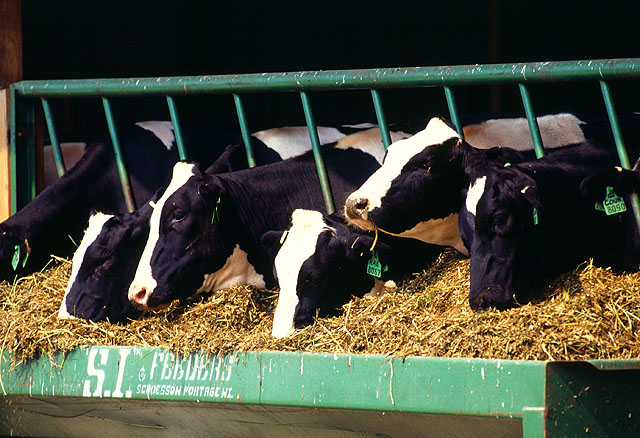

USDA will require certain dairy cattle to be tested for avian influenza before they can be transported to a different state. (Photo by Scott Bauer/USDA Agricultural Research Service)
On Tuesday, the U.S. Food and Drug Administration said tests had revealed fragments of the virus in pasteurized milk, but that they don’t pose a risk to public health.
“While we are taking this action today, it is important to remember that thus far, we have not found changes to the virus that would make it more transmissible to humans and between people,” the USDA said Wednesday.
It has been a month since the virus was first confirmed to have infected dairy cattle in Texas. The virus has now been detected in 33 dairy herds in eight states, the USDA said. Part of that spread has been attributed to the transportation of infected cows to new herds.
The cows most often recover from infection after a week or so, but their tainted milk cannot be used for commercial human consumption. The virus is often deadly for poultry and can rapidly infect flocks.
The rules set to take effect on Monday require lactating dairy cattle to test negative for influenza A before they are transported across state lines, and that requirement might be expanded to other types of dairy cattle in the future.
Labs must also report their confirmed infections of livestock to the USDA, and certain herd owners must provide details about where their cattle have been transported.
Further information about the new rules is forthcoming, and state agriculture officials declined for now to say what impact they will have on Iowa dairy farmers.
“We are still awaiting specific guidance from USDA regarding this new interstate movement order,” said Don McDowell, a spokesperson for the Iowa Department of Agriculture and Land Stewardship.
John Maxwell, a dairy farmer near Davenport, Iowa, predicted that the effects for most dairies in Iowa will be inconsequential and that it’s best to be cautious and increase testing until more is known about the disease.
“We have to do tests anyway,” he said, in reference to dairy cattle he sells out-of-state. “So it would be one more test and whatever the cost it might be. One more is not the end of the world.”
The USDA has said it will reimburse farmers for testing of sick and asymptomatic cattle.
States with confirmed bird flu infections of dairy cattle include Kansas, Idaho, Michigan, New Mexico, North Carolina, Ohio, South Dakota and Texas.
A virus similar to what has infected cows has been found in poultry flocks in Kansas, Michigan, Minnesota, New Mexico and Texas, the USDA said.
by Jared Strong, Virginia Mercury
Virginia Mercury is part of States Newsroom, a nonprofit news network supported by grants and a coalition of donors as a 501c(3) public charity. Virginia Mercury maintains editorial independence. Contact Editor Samantha Willis for questions: info@virginiamercury.com. Follow Virginia Mercury on Facebook and Twitter.
State News
Fires Have Consumed Nearly 20,000 Acres in Virginia This Spring. That Could be Good for the Environment.
Almost 20,000 acres have been lit by flames that primarily torched the western and central parts of the state so far during Virginia’s 2024 spring fire season. With about a week left until the season ends, that is double the amount of acres affected annually in the state across its 10-year average.
There’s no question that the fires visibly caused an immediate loss of vegetation and wildlife habitat, but state and federal officials said in interviews with the Mercury last week the blazes provide some benefits and are a centuries-old resource management tool.
“It does play an important role in the ecosystem,” said Michael Downey, assistant director for wildfire mitigation and prevention at the Virginia Department of Forestry. “In the public’s eye it is a natural disaster, but we do try to keep it in a controlled, contained environment.”
Prescribed, or controlled, blazes are regularly implemented by state and federal agencies, which include the Department of Forestry, the Department of Wildlife Resources and the U.S. Forest Service. It’s the unruly nature of the wildfires that can cause concern, particularly given the proximity to neighborhoods and communities where people live.
“We don’t want people thinking, ‘Let’s go start a wildfire,’ but there are benefits,” said Michael Puckett, a small game project leader at DWR, adding that the fires are not solely a matter of loss of wildlife habitat, but a “matter of change.”
It’s the human communities abutting the wooded areas that are inhibiting wildlife’s ability to roam freely to and from impacted areas. Humans also contribute to some of the causes of the fires.
“As wildfires grow in severity/intensity, we will see species moving in new patterns and places in order to find new habitat,” both immediately after fires and in the longer term as species’ ranges shift, said Misty Boos, U.S. conservation policy manager at Wildlands Network.
“This underscores the importance of protecting large, connected landscapes and wildlife corridors so species can move and adapt, but it also demonstrates the importance of wildlife coexistence.”
Flora and Fauna
Starting at the ground level, the fires’ effects can matriculate down into the soil, depending on the severity, determined by fire intensity and duration.
The fires’ effect can increase dirt’s water repellency, or inability to hold water, leading to it eroding and potentially ending up in waterways.
Following the fires that hit the state in 2016, researchers at Virginia Tech found that some severely-burned areas were water repellent at rates of 68-74%. The unburned areas showed water repellency at a rate of 0-18%, the research found.
“A lot of fires in [Virginia] don’t get as large or hot as those out west, but in local areas we can see pretty severe burn severities,” said Ryan D. Stewart, an associate professor at Virginia Tech.
“Areas that have moderate to severe burn severities can have issues like the upper duff and organic layers being consumed, and development of a layer a few inches deep that does not easily rewet.”


A forest in Highland County during a prescribed burn by the Virginia Department of Forestry in 2021. (Sarah Vogelsong/Virginia Mercury)
On the flora aspect, the clearing of taller trees can pave way for sunlight to reach the lower level vegetation, said Puckett. Creating a more diverse portfolio of vegetation within the forest can create a more diverse ecosystem, added Lane Gibbons, fire management specialist at Shenandoah National Park.
“If you kind of think of it in terms of investing, you don’t invest all of your money in one thing. That’s too much of a gamble,” said Gibbons. “You really want a diverse portfolio. It works very [similarly] in forests. If you have more of a diverse portinfo — tall versus short, young versus old — if you have a greater variation [and] then you have a greater variation of types of organisms using those resources.”
Over time, forests in Virginia have become more resilient, with thicker oak trees popping up in places more susceptible to fires, Gibbons added, with less-deterrent maple pines growing in areas less likely to catch a blaze.
While oaks may be stronger, they also can attract invasive animal species, like the Spongy Moth, whose presence requires some maintenance and can be found throughout the state.
The caterpillar-like creatures provide benefits to forested areas by thinning out trees, allowing other plants to grow. But the bugs feed primarily on the oaks attracting them, which, in addition to their fire resilience, provide numerous benefits to the climate, including capturing carbon in the atmosphere.
“We’re looking at ways to bring back oak and fire is one of those ways to do a timber stand improvement,” Downey said, describing the process of removing undesirable species and then setting fires to bring back nutrients into the soil. “That’s sometimes what oak needs for it to regenerate.”
On the fauna aspect, the Wildlife Center of Virginia took in a bear cub found to suffer from smoke inhalation. Smaller amphibious animals like the box turtle suffer from the havoc wreaked by the blazes, because they live in small brush or leaf litter and can’t move out fast enough.
But larger wildlife that call the western parts of the state home, like turkey or small game like squirrels, may be displaced immediately, but sometimes they can be seen returning to the area before the smoke clears, Puckett said.
“We have enough moisture in the system here,” said Puckett, adding that wildlife can return within a year. “It’s not like cases out west that may burn down into the soil with the dry climate and lack of rainfall. Things don’t tend to recover as quickly as they do here.”
Human influence
It’s often humans, who infringe on animal habitats, that create cause for concern related to wildfires.
According to information released in January by the Weldon Cooper Center for Population Estimates, some rural areas of Virginia saw losses in population while others saw gains. Page County’s population grew by 2 to 4% from 2020 to 2023. Some central and eastern areas of the state, including Louisa County, grew by over 4%.
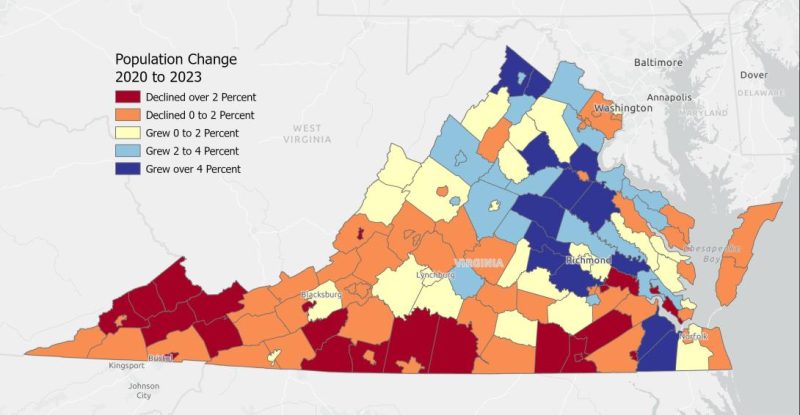

Population change from 2020 to 2023. (Courtesy of Weldon Cooper Center Population Estimates)
Those increasing populations spur the development of communities abutting wooded areas that frequently prevent wildlife from being able to roam freely away from fires. Republican Gov. Glenn Youngkin signed House Bill 309 and Senate Bill 461, which directs the Virginia Department of Forestry to create a plan that includes protection of wildlife corridors, and large contiguous blocks of forests.
“As we’ve seen, events like wildfire (as well as floods, hurricanes, extreme snow storms, etc.) can temporarily bring wildlife into closer proximity to people, which can cause conflicts,” said Boos, with Wildlands Network.
More development means more utility infrastructure, such as electric power lines, getting built. The strong winds this past season that led to power lines being knocked down and sparking blazes, instead of natural causes like lightning strikes that happen in Alaska.
“80 to 90% of fires are caused by humans,” Downey said.
When asked about downed power lines causing some of the fires this past spring, spokesperson for Shenandoah Valley Electric Cooperative said the utility, “will continue to cooperate with all affected localities to assess damage as we rebuild damaged power grid infrastructure.”
“This widespread event, combined with extremely low humidity, made conditions favorable for wildfires,” said Preston Knight, SVEC spokesperson. “Many communities throughout our service territory have experienced wildfires and our hearts go out to those who have suffered anguish and loss.”
Residents can clear debris from around their homes to prevent the fires from spreading, a task the Department of Forestry can help with despite their limited capacity, Downey said.
“We can only do what we can with our resources,” Downey said.
Impact going forward
Leading up to the fall and spring fire season, there were periods of drought identified by the Department of Environmental Quality. A report from the U.S. The Department of Agriculture found that “increased fuel load and more frequent droughts may increase wildfire frequency and intensity within the Southeast.”
That same USDA report said ways to make forests more resilient included, “taking steps necessary to appropriately manage stand density, hydrologic characteristics, and natural habitats,” and that these steps “can also have a positive impact on the ecological functioning and overall health of the forest.”
Adding fuel to the fire, literally: A study out of the University of California Riverside found plants are more easily burning as a result of absorbing more carbon that’s in the air, carbon created by pollution.
Creating markets for pulpwood and biomass that come from the over 16 million acres of forests in Virginia, about 80% of which are privately owned, can help reduce fuels by removing “less desirable species and residuals from the understory and floor of the forest,” said Corey Connors, executive director of the Virginia Forestry Association.
One of the authors of the University of California study’s said in a statement that, “we do need to implement better fire control and have more prescribed burns to use up plant fuel. We need to get rid of the old stuff.
“But the best way to decrease wildfires is to mitigate our carbon dioxide emissions,” Gomez said. “We need more emission control now.”
In Virginia the largest sources of emissions are transportation, followed by the commercial industry sector and electricity generation, according to DEQ.
While international research points to human-created emissions causing climate change, the impacts of climate change on the fires affecting the adaptability of the ecosystem in forests is still being determined, Gibbons said.
“It’s a topic that we’re trying to figure out,” he said. “We’ll implement strategies as we learn more.”
by Charlie Paullin, Virginia Mercury
Virginia Mercury is part of States Newsroom, a nonprofit news network supported by grants and a coalition of donors as a 501c(3) public charity. Virginia Mercury maintains editorial independence. Contact Editor Samantha Willis for questions: info@virginiamercury.com. Follow Virginia Mercury on Facebook and Twitter.
State News
Commuter Train System Eyes Expansion, Part of Virginia’s Evolving Rail Trends
While 2050 is more than a quarter century away, The Virginia Railway Express wants to start transforming its commuter rail operations much sooner by offering Saturday services as it considers its System Plan 2050, part of holistic, multi-agency efforts to transform rail services in the commonwealth.
Last year, the VRE Operations Board — which is represented by the nine jurisdictions that fund the commuter rail service — backed the agency’s budget that included a 5% fare hike, or 50 cents more, due to the increase in services since 2020. The budget also included a plan to, for the first time, operate Saturday train service on tracks shared with Amtrak, CSX and Norfolk Southern.
The next step is for the board to endorse the agency’s System Plan 2050, designed to help officials address the public’s changing travel patterns, including those of commuting office workers, which have shifted over the past decade. The board is scheduled to vote on the plan June 21.
The plan is built around four goals: safety and reliability; market growth and financial stability; regional system integration and equitable service; and sustainability and resiliency. The goals of market growth and equitable service focus on maximizing daily riders and expanding daily service offering non-peak and weekend service.
“We have four system plan goals for the 2050 plan and each goal is important. However I believe goal #2 is the most important because we must grow our market for VRE service while maintaining financial stability; provide service for a full range of travel given the changing needs of the regions,” said Meg Bohmke, chair of the VRE Operations Board.
Board member James Walkinshaw added that while the board is considering expanding service, it intends to continue meeting commuters’ demands as well.
The plan
Overall, VRE’s plan will accommodate commuters, but also families and travelers who want to tour Washington D.C., and historic areas and battlefields in Virginia through expanded Saturday services, and potentially more daily weekday trips and an express service.
VRE operates two rail lines originating from Washington D.C. The first rail line runs to Spotsylvania and the second to Broad Run in Prince William County.
By surveying passengers, officials learned that telework rates are higher than before the pandemic, and passengers believe it’s faster to drive than take public transit.
Respondents also asked for more schedule flexibility, better connections to VRE stations, and more support for non-commuters.
“I know a lot of folks who live in Richmond and work for the federal government, who utilize VRE, and they would certainly like to do it more with later trains, earlier trains, and maybe trains that don’t fit that normal pre-pandemic commuting pattern,” said Danny Plaugher, executive director of Virginians for High Speed Rail.
Plaugher said he’s also excited about the VRE’s emphasis on reducing environmental impacts.
“I think there’s going to be a tremendous opportunity for VRE in the future, and it is exciting that they’re beginning that process now for how they can continue to evolve on that front,” Plaugher said.
To meet the goals of the proposed plan, Walkinshaw said VRE’s plan would require additional locomotives, passenger railcars and personnel to upgrade its rail commuter services, which they’ve offered since 1992.
Walkinshaw said VRE already has the railroad tracks to make the 2050 plan work, but there are more components that will be needed, including funds to help increase the rail capacity of the Long Bridge from Washington D.C. to Virginia. In December, Virginia leaders announced the state received $729 million in federal funds to help pay for the expansion of the bridge that crosses over the Potomac River.
Further investments will be used to extend platforms, improve stations and add parking at key stations.
The past chair said the plan creates a transit system that he believes the region “needs and deserves.”
“VRE is going to be a key piece of the overall region’s transit network between now and 2050 in a much more substantial way than it is even now,” Walkinshaw said.
Transforming rail
Simultaneously, as VRE’s System Plan 2050 is being finalized, the Transforming Rail in Virginia program is enacting a more wide ranging effort to improve passenger and rail service along the Interstates 64, 85 and 95 corridors.
According to the Virginia Department of Transportation, the program would allow Virginia to double Amtrak’s state-supported service and increase VRE services over the next decade.
The program would also build the foundation for higher-speed passenger rail service to the Southeast by acquiring the abandoned S-Line, running from Petersburg into North Carolina.
Plaugher said having more rail options for travelers is essential, and VRE’s plan is also beneficial because it helps get more cars off the road as the leaders seek to reduce carbon emissions.
“Commuter rail is a huge component of transforming rail,” Plaugher said. “Having alternatives is very important, and so this proposal, I think, fits perfectly within the Transforming Rail [in Virginia].”
While he’s uncertain what future capacity will look like by 2050, Plaugher said it’s good that VRE has started to plan for the future.
“And one thing I’ve heard from our transit agencies, especially the commuter-based ones, is that even though the ridership is lower than pre-pandemic, more people are actually using the service overall.”
According to data from the Department of Rail and Public Transportation, VRE recorded 20,036 passengers in 2021. Ridership increased in the following two years: 37,487 passengers in 2022 and 120,228 in 2023.
This story was updated to add Bohmke’s remarks and to correct the terminal location of the VRE’s Broad Run line.
by Nathaniel Cline, Virginia Mercury
Virginia Mercury is part of States Newsroom, a nonprofit news network supported by grants and a coalition of donors as a 501c(3) public charity. Virginia Mercury maintains editorial independence. Contact Editor Samantha Willis for questions: info@virginiamercury.com. Follow Virginia Mercury on Facebook and Twitter.
State News
Virginia School Board Files $600K Lawsuit Against Father of Special Needs Student
The Bedford County School Board filed a lawsuit seeking $600,000 in damages from the father of a special needs student, claiming the man’s abrasive communications with school staff about his son’s treatment over the last three years amounts to illegal intimidation and harassment.
In court filings, Bedford resident David Rife insists he’s the one being intimidated, noting that the county school board sued him shortly after he filed a complaint with the Virginia Department of Education saying local school officials weren’t following the individualized education program, or IEP, designed to accommodate his son’s learning disability and improve his reading skills. When he filed the complaint, Rife told state officials he feared he would face retaliation locally, according to court documents.
The school board filed its lawsuit against Rife on March 26, roughly a month after Rife sent his complaint to state education officials.
In a March 29 letter responding to Rife’s complaint, state education officials ruled Bedford school officials were out of compliance in several policy areas and ordered the division to take corrective action in regards to Rife’s son by April 29.
In his answer to the lawsuit, Rife suggested the timeline “suggests the possibility” the suit may have been retaliation and argues it’s school officials who are in the wrong.
The court case highlights ongoing disputes over parents’ rights in K-12 schools, spotty compliance with special education rules and how public officials should handle unpleasant or hostile speech from critics.
Virginia adopts regulatory changes for special education amid federal review
The case was brought on behalf of the Bedford School Board by attorneys in the Richmond office of Sands Anderson, a law firm that handles a variety of local government issues. A Sands Anderson attorney didn’t respond to a request for comment on Rife’s claims about the motivations for the suit.
Bedford School Board Chairman Marcus Hill didn’t respond to requests for comment Monday. The school board itself is the plaintiff suing Rife.
In court filings responding to the suit, Rife and his attorney contend he had good reason to be frustrated with Bedford schools over the lack of consideration for state and federal special education laws. Rife’s defense contends he only used “impolite” language while “passionately advocating” for his son, who suffers from anxiety and was reading at a fifth grade level as a sophomore in high school.
“It is highly ironic that BCPS, whose School Board members have emphasized repeatedly and strongly the importance of protecting parental rights, have now sued a parent for a total of $600,000.00 because the school personnel did not like how he has advocated for his son,” said the response filed on Rife’s behalf by Bedford attorney David Whitehurst.
The civil suit claims Rife used “obscene, vulgar, profane, lewd, lascivious and/or indecent language” when interacting with school staff in person, over the phone and via email. The lawsuit lists several examples of Rife threatening to call the police, have people arrested, file lawsuits or initiate investigations over what he believed to be mistreatment of his son.
The filing recounts conversations in which Rife allegedly said the school principal should “get her head out of her ass” and said her “bullshit” was putting his son at risk. Documents filed in court also suggest Rife used the terms “asshole,” “jerk” and “jerkoff” to refer to school staff members.
Bedford school officials tried to put Rife on a communications plan in early 2023 that limited his contact with staff.
“Bedford County Public Schools expects parents to be respectful and civil when interacting with school staff members,” Deputy Superintendent Karen Woodford wrote to Rife last July in a letter filed with the lawsuit. “We will no longer tolerate your profanity to staff, threats, dishonest communication about people losing their jobs, yelling and speaking badly about staff members. If you cannot abide by this plan, I will limit your interaction with staff even more than it is at this time.”
In addition to the $600,000 the school board is seeking from Rife for “personal injury, lost profits, increased operating expenses and legal fees,” the board is asking the Bedford Circuit Court to order Rife to stop using vulgar language and follow the communications plan the school division laid out for him.
“Putting an end to the abuse of government resources is plainly in the public interest,” the school board’s lawyers wrote in a motion seeking an emergency injunction against Rife.
Rife’s attorney has argued that nothing he said rises to the level of criminal conduct under the laws the school board pointed to dealing with using a computer or phone for harassment and “abusive language to another.” The communication plan the school division is asking the court to enforce states that Rife can only use email to contact the school principal and the division’s director of special education and says they “will not communicate through phone unless there is an emergency.”
In a competing motion asking the court to order Bedford County Public Schools to comply with the IEP plan, Rife’s side argued the injunction school officials were seeking would infringe on free speech.
“It would serve as a ‘lesson’ to other parents that advocating for their children could result in being sued,” Rife’s motion says.
The communications the school divisions objected to, Rife’s attorney argued in legal filings, should be understood in the context of a parent trying to help their child but getting little assistance from school officials. Many of the interactions school officials spotlighted involved Rife complaining about bullying by other students or behavior by teachers that he felt was adding to his son’s difficulties at school, according to court records.
“One example is that Mr. Rife has been restricted from speaking directly with his son’s case manager or the reading specialist for over three years outside of IEP meetings,” Rife’s court filings say. “As would most parents in such a situation, this has caused him to become frustrated and upset, and that frustration has at times been expressed to school employees, but never with malice or threat.”
The specific language school staff found offensive would “generally be considered fairly mild in today’s culture,” Rife’s court filings argue.
State officials ruled Bedford officials were not in compliance with several sections of the student’s IEP calling for him to receive specialized instruction and assistance. For example, the plan called for the student to receive at least 45 minutes of reading services five times per week in a special education setting, but state officials determined he wasn’t always getting that level of instruction.
The state ordered Bedford school officials to reexamine the student’s IEP, discuss whether he needed extended school year services and review what “compensatory” assistance was necessary to address the impact on the student’s “access to a free appropriate public education.”
Attorneys for the school board portrayed the lawsuit as a necessary step to safeguard the school division after less formal efforts to improve relations with Rife failed.
The courts requiring Rife to communicate with school officials in a particular manner, the school board’s lawyers wrote, won’t impede his ability to have “reasonable, good faith communications with BCPS about his child’s education.”
A hearing has not yet been scheduled in the case.
by Graham Moomaw, Virginia Mercury
Virginia Mercury is part of States Newsroom, a nonprofit news network supported by grants and a coalition of donors as a 501c(3) public charity. Virginia Mercury maintains editorial independence. Contact Editor Samantha Willis for questions: info@virginiamercury.com. Follow Virginia Mercury on Facebook and Twitter.
State News
Youth Violence Prevention Program Funding Hangs in the Balance as Legislature Reworks State Budget
Two Virginia school divisions are slated to launch a pilot program intended to help reduce youth involvement in gangs and violent behaviors with guns but it’s unclear if the initiative will be fully funded, as lawmakers go back to the drawing board to work up a new state spending plan.
On April 2, Gov. Glenn Youngkin signed legislation to create the Community Builders Pilot Program that will start with Roanoke and Petersburg City Public Schools students entering the eighth grade. Pupils in both districts face high rates of gun violence and cases of students bringing firearms to school.
Bill carriers Sen. Lashrecse Aird, D-Petersburg, and Sam Rasoul, D-Roanoke, said unlike other community violence intervention efforts centered around getting weapons off the streets, their legislation takes a different approach because it centers students.
“We’re hoping by involving young people that perhaps it helps in other ways,” said Aird, adding that such a program could also have a “residual impact” on children facing disciplinary trouble in school.
“But ultimately, [this legislation] is specifically trying to make sure that when they are no longer in school, they have another outlet that’s pouring into them and they’re not getting involved in things that can be harmful to themselves and others when they are outside of the school walls,” she said.
If the program is successful, Rasoul — who serves as the chair of the House Education Committee — said he hopes it will expand to other schools and grade levels.
“This is a great way to keep students focused, especially through the summer, and to build some healthy habits with a very specific curriculum that then follows them throughout their eighth grade year,” said Rasoul.
According to the pilot program legislation, the initiative will provide community engagement, workforce development, postsecondary education exploration, social-emotional education and development opportunities to students during the academic year after regular school hours and during the summer months.
Schools will collect data and report the program’s progress to the governor’s administration and General Assembly every November for the next two years.
Public interest in youth gun violence prevention has increased, most notably after a then-six-year-old student brought a firearm from home to his Newport News elementary school last year and shot his teacher. The teacher, Abigail Zwerner, was seriously injured but survived.
The Community Builders program might have scored a legislative win, but funding for the program will remain unclear until the governor and leaders from the General Assembly determine the final budget before the June 30 deadline.
Virginia legislature will consider reworked state budget in May 13 special session
The General Assembly backed the pilot program with $800,000 in dedicated funds over the next two years. However, the governor amended the budget, cutting the request to $400,000. It’s an example of the governor’s and the General Assembly’s differing opinions on how the commonwealth should be funded for the next two years.
Del. Mike Cherry, R-Colonial Heights, who supported the Community Builders legislation, said during the Jan. 30 House Education subcommittee hearing that he believes it to be a “great model program” and would work well with Ceasefire Virginia in supporting communities facing high levels of crime.
In 2022, Ceasefire was launched as a multi-jurisdictional approach to address violent criminal activity among serious and repeat offenders in partnership with Virginia’s attorney general’s office, elected officials and law enforcement.
The purpose of the initiative is to reduce violent crime through partnerships and investments into gang prevention and community policing. Ceasefire has been implemented in 13 cities statewide, including Petersburg and Roanoke.
“When you ask high school students ‘When did things start to go wrong?’ many times they will point to the middle school level,” Verletta White, superintendent of Roanoke City Public Schools, said during a Jan. 30 House Education subcommittee hearing.
“We want to target our rising eighth graders and show them not only the detrimental effects of violence on a community, but their responsibility and how they can be community builders instead.”
by Nathaniel Cline, Virginia Mercury
Virginia Mercury is part of States Newsroom, a nonprofit news network supported by grants and a coalition of donors as a 501c(3) public charity. Virginia Mercury maintains editorial independence. Contact Editor Samantha Willis for questions: info@virginiamercury.com. Follow Virginia Mercury on Facebook and Twitter.
State News
Virginia Legislature Will Consider Reworked State Budget in May 13 Special Session
Gov. Glenn Youngkin and lawmakers have agreed to work together on the biennium budget, after clashing for weeks over two distinctly different spending plans.
A special session will be held on May 13, Youngkin and lawmakers in both chambers announced Wednesday, to consider the revamped budget and prevent a shutdown ahead of July 1, when the current budget expires.
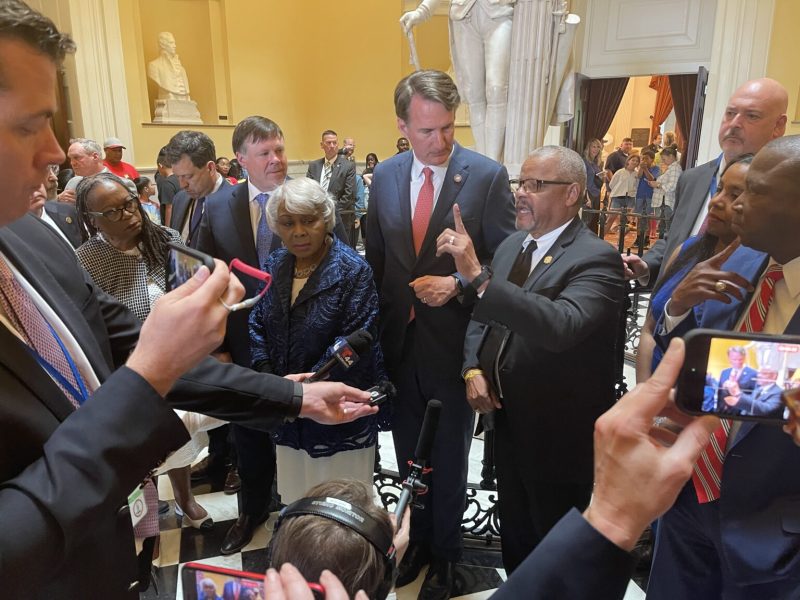

Gov. Glenn Youngkin was joined by Democratic and Republican leaders from both chambers in the Capitol’s rotunda on April 17. (Nathaniel Cline/Virginia Mercury)
On Wednesday, the House of Delegates voted to reject all 233 of the governor’s amendments to the budget, and agreed to seek a new budget to present to the legislature May 13, with voting on it expected May 15. They also took up the governor’s other bill amendments and 153 vetoes.
The House accepted all Youngkin’s vetoes, including bills that would have raised the minimum wage, created a Prescription Drug Affordability Board to cap drug prices, protected people who come to Virginia for reproductive health care from extradition and prohibited assault firearms in public places.
Future of skill games in Virginia still unclear as Senate rejects Youngkin’s proposal
The bill amendments up for debate included: changes to legislation that would legalize skill machines, which was rejected by the Senate; a measure that would lower the amounts Dominion Energy and Appalachian Power Company can recover from customers for their pre-construction costs of a small modular reactor, which was adopted in their respective chambers; and another that would require school boards to notify gun-owning parents annually of their responsibility to safely store firearms to keep them away from their children, which was also rejected by the delegates.
It’s not clear what will happen to the language the legislature included in its budget that would’ve ordered the state to rejoin the carbon market known as the Regional Greenhouse Gas Initiative, or RGGI, that incentivizes electricity producers to emit less carbon by making them purchase allowances to do so.
Youngkin — who passed a regulation that withdrew Virginia from RGGI despite RGGI supporters saying a legislative change was needed — has opposed participation in RGGI, while calling the fee for the allowances that utilities can recover from ratepayers a “hidden tax.” The regulation withdrawal is being challenged in court.
The budget delay also creates uncertainty for local governments trying to estimate how much funding schools will receive and the Washington Metropolitan Area Transit Authority, or Metro, which is seeking additional funding from the state to bridge its $750 million shortfall.
Before Wednesday’s veto session, the governor tried compromising on the budget with lawmakers by removing all tax increases they had approved — including the digital service sales tax he initially proposed — but also dropping the tax cuts he requested in December.
In the Capitol’s rotunda with Democratic and Republican leaders from both chambers Wednesday afternoon, Youngkin said all parties are close to a budget agreement after meeting over the last few days.
“We believe this is a good path forward for the commonwealth,”Youngkin told reporters. “It reflects the work that has been done from the General Assembly and from the governor’s office.”
He added that no decisions have been made yet on the specifics of the budget, including tax increases, but he looks forward to meeting with leaders.
“This was a collective decision, and you will see from the vote this morning that it is unanimous amongst all of us to press forward in this fashion,” Youngkin said.
House Appropriations Committee Chair Luke Torian, D-Prince William, added, “We agreed that there is nothing that’s off the table. Everything will be up for discussion and deliberations. No decisions have been made at this point.”
Senate Finance and Appropriations Committee Chair Louise Lucas, D-Portsmouth, told a reporter that they were “absolutely correct” that envisioning the governor, Democrats and Republicans standing together in the rotunda two months ago was unlikely to happen when there were different budget priorities on both sides, including Youngkin’s arena proposal to bring two professional sports teams to Northern Virginia and the Democratic-controlled legislature’s plan to raise the minimum wage and allow retail cannabis sales in the state.
“But I think what’s changed is that there has been a lot of collaboration,” Lucas said. ”I think nothing helps the process more than everybody getting together, sitting around the table and talking about what we can all do to help Virginia. I think we all had different ways we thought we were going to get there, but I think now we are going to work together towards something that will keep the temperature down a little bit.”
Sen. Ryan McDougle, R-Hanover, who, along with Lucas, met with the governor earlier this week, said he is optimistic about the process moving forward.
“That’s how you come to a resolution,” McDougle said. “Everybody’s got to come to the table and talk and be heard and once you do that you can find solutions.”
by Nathaniel Cline, Virginia Mercury
Virginia Mercury is part of States Newsroom, a nonprofit news network supported by grants and a coalition of donors as a 501c(3) public charity. Virginia Mercury maintains editorial independence. Contact Editor Samantha Willis for questions: info@virginiamercury.com. Follow Virginia Mercury on Facebook and Twitter.








